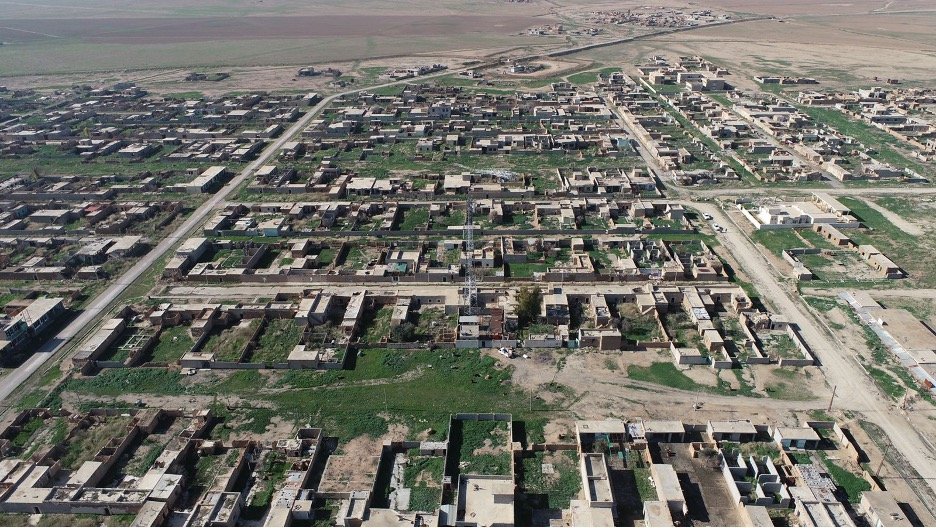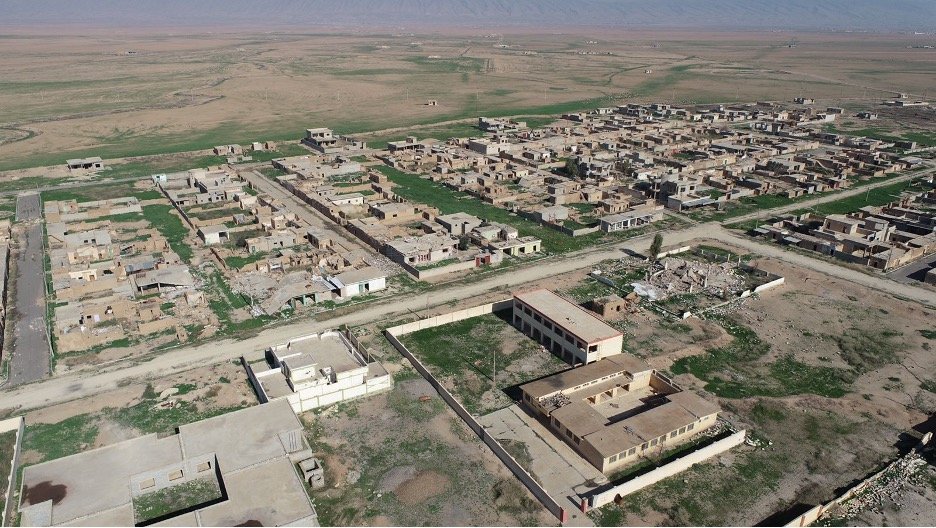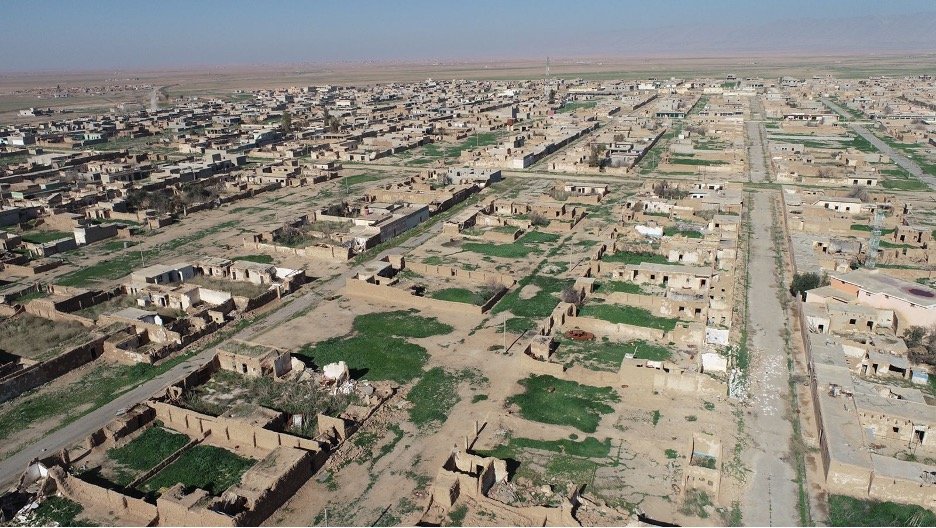Importance of Investing in South Sinjar to Facilitate Dignified Return
As a result of ISIS’ invasion in the Sinjar region in 2014, the areas south of Mount Sinjar sustained significantly more damage than the north, yet have received less investments in their redevelopment. Aljzeera complex, also known as Siba Sheikh Kheder, located in Alqahtaniya sub-district in the south, was one of the first Yazidi areas targeted by ISIS. Prior to the genocide, Aljzeera was home to 6,000 families. When ISIS invaded, thousands were forcibly displaced, around 300 men were mass murdered, and more than 300 women and girls were enslaved. ISIS destroyed the majority of the complex’s infrastructure, including their schools, water infrastructure, and primary healthcare center (PHC). Most of the houses in the complex were mud houses, all of which were looted by ISIS and have deteriorated after 8 years of abandonment.
In 2014, ISIS perpetrators first attacked Adnaniya complex, also located in Alqahtaniya sub-district, displacing 3,000 families, killing a hundred men, and enslaving more than a hundred women and girls. As they did in Aljzeera, ISIS destroyed most of Adnaniya’s infrastructure, including all five schools in the complex, the PHC, seven boreholes, the municipality building, and the police station.
Perhaps the greatest devastation of ISIS’ genocide was felt by the small community of Kocho village, Nadia Murad’s hometown. On August 15th, twelve days after the genocide began, ISIS perpetrators committed what is now known as the Kocho Massacre, executing hundreds of Kocho residents, enslaving most of the village’s women and children, and obliterating the village’s infrastructure. Today, more than 17 mass graves have been uncovered in Kocho, while many others remain in unknown locations.
Eight years after the genocide, still displaced families have declared their desire to return to their areas of origin. To facilitate this return, Nadia’s Initiative (NI) has taken a proactive approach and, in coordination with the community, has already begun restoring basic services and infrastructure prior to the return of displaced families.
NI implemented projects to extensively rehabilitate Aljzeera and Adnaniya complexes. In Aljzeera, NI rehabilitated and furnished the PHC and a primary school. In Adnaniya, NI rehabilitated and furnished the PHC and a primary school, restored water, sanitation, and hygiene (WASH) infrastructure, and worked with the Iraqi military to de-mine the area. In Kocho village, NI is working with IOM to build a new village in close proximity to the old one and memorialize the old village.
To respond to a recent increase in returnees to Adnaniya and Aljzeera, NI has launched emergency livelihoods projects to provide returnees with the immediate support they need to ensure a sustained return. In Aljzeera, NI is providing returnees with shelter support, as well as water tanks and water purification devices. In Adnaniya, NI is providing shelter support, supporting the police station, and restoring electricity.
NI recognizes the vital importance of laying the foundations for a sustainable return. We cannot expect families to return to Sinjar if no one will invest in restoring basic infrastructure or services in their areas of origin. That is why NI has implemented critical projects that are now serving as vital resources for the community as they continue to return.
Nadia Murad and NI have been underlining the need for this approach in Sinjar for years. As more and more Yazidi families are fleeing the hopelessness of the IDP camps to return to their areas of origin, we are grateful that some basic infrastructure and services are ready for them. But more support is urgently needed in these areas.
On the eighth anniversary of ISIS’ atrocities, Nadia Murad clearly outlined what is needed to end the ongoing genocide against the Yazidi people. Today and every day, we call on the international community and Iraqi government to heed Nadia’s words and facilitate a sustained return by providing the necessary shelter, clean water, healthcare, livelihoods, and education infrastructure. We must not abandon the Yazidis in their time of need.



